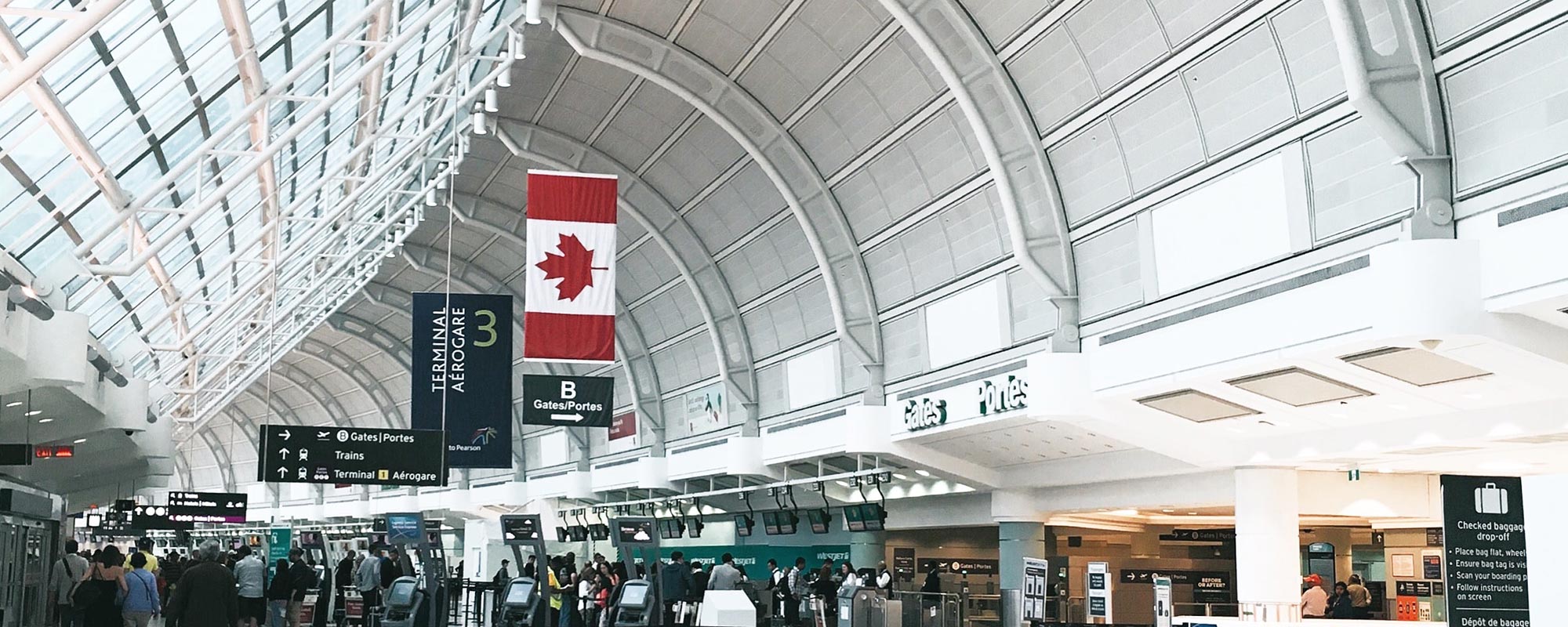Dans un bref publié par le Comité permanent de la sécurité publique et nationale de la Chambre des communes (SECU), l'Association canadienne des libertés civiles (ACLC) a demandé au Comité de reconsidérer l'approche erronée adoptée par le projet de loi C-12, le projet de loi sur la protection de la vie privée. Loi renforçant le système d'immigration et les frontières du Canada.
Au lieu de maintenir le rôle du Canada en tant que pays d'accueil pour les réfugiés et les migrants, le projet de loi C-12 crée une injustice fondamentale dans le système d'immigration du Canada et violera le principe de l'égalité de traitement entre les hommes et les femmes. Charte des droits et libertés ainsi que nos obligations internationales en matière de droits de l'homme en ce qui concerne les réfugiés.
Le mémoire met l'accent sur trois lacunes principales du projet de loi :
- Le projet de loi C-12 empêchera de nombreux réfugiés d'accéder à une évaluation équitable de leur demande devant la Commission de l'immigration et du statut de réfugié, ce qui augmentera considérablement le risque qu'ils soient déportés dans des conditions de persécution ;
- L'octroi par le projet de loi C-12 d'un large pouvoir discrétionnaire permettant d'anticiper, de suspendre ou de clôturer les demandes d'immigration et de modifier ou de révoquer les documents d'immigration pour des raisons "d'intérêt public" non définies ; et
- Le projet de loi C-12 autorise largement le partage d'informations sensibles sur l'immigration.
Les effets néfastes du projet de loi C-12 seront ressentis de la manière la plus aiguë par les groupes vulnérables, et pourtant les voix de ceux qui subiront le poids de cette proposition législative ont été largement ignorées dans l'empressement du gouvernement à faire adopter le projet de loi C-12 par le Parlement. Compte tenu de ce processus législatif précipité, il n'est pas surprenant que le projet de loi C-12 ne réponde pas aux réalités des personnes les plus touchées, tout en n'atteignant pas l'objectif déclaré du gouvernement de rationaliser le système d'immigration du Canada.
Certains éléments du projet de loi C-12 priveront les réfugiés de l'accès à une évaluation indépendante et équitable de leur demande et de leur droit de faire appel devant la Commission de l'immigration et du statut de réfugié (CISR), qui est indépendante. De nombreux demandeurs d'asile arrivent au Canada après avoir été contraints de laisser toute leur vie derrière eux et après avoir effectué des voyages éprouvants. Compte tenu des graves conséquences qui résultent du renvoi de réfugiés confrontés à la persécution, à la détention ou même à la torture, les demandeurs d'asile ont le droit de faire valoir leur demande dans le cadre d'une audience au cours de laquelle ils peuvent expliquer en détail la nature de leur situation. En témoignage Devant le Comité permanent de l'immigration de la Chambre des représentants (CIMM), les représentants du Haut Commissariat des Nations Unies pour les réfugiés ont explicitement déclaré qu'en refusant aux demandeurs d'asile le droit à une audience et à un appel complet de leur demande, le projet de loi C-12 ne respectait pas les normes internationales minimales en matière de droits de l'homme.
Le gouvernement n'a pas justifié les sanctions sévères qu'il impose aux demandeurs d'asile. Le projet de loi C-12 pénalisera les demandeurs d'asile sur la base de critères arbitraires - si plus d'un an s'est écoulé depuis leur entrée au Canada, ils se verront refuser le droit à une audience et à un appel. Cela ne tient pas compte de la réalité des demandeurs d'asile et des nombreuses raisons légitimes pour lesquelles une demande d'asile peut être retardée de plus d'un an. Les demandeurs LGBTQIA+ et les demandeurs qui ont survécu à des traumatismes, à la torture ou à la violence sexiste seront particulièrement exposés à ce délai arbitraire d'un an, car il peut s'écouler des années avant que les personnes ayant subi ce type de persécution ne se sentent suffisamment en sécurité pour révéler leur identité ou partager leurs expériences. D'autres demandeurs d'asile seront pénalisés par ce système au motif qu'ils ont d'abord cherché d'autres voies pour obtenir la résidence au Canada ou simplement parce que la situation dans leur pays d'origine a changé.
Si l'efficacité ne peut jamais se faire au détriment de la satisfaction des besoins du Canada en matière d'environnement, elle ne peut pas non plus se faire au détriment des besoins de la population. Charte et les obligations internationales en matière de droits de l'homme, il convient de noter que le fait de refuser aux demandeurs l'accès à la CISR n'améliorera pas l'intégrité ou l'efficacité du système canadien d'octroi de l'asile. Les demandes d'asile devront toujours être évaluées par des fonctionnaires d'Immigration, Réfugiés et Citoyenneté Canada (IRCC), et les décisions de l'IRCC seront soumises à un contrôle judiciaire qui prendra du temps, malgré l'important arriéré et le manque de personnel à l'IRCC et à la Cour fédérale. Les décisions d'IRCC manquent d'indépendance et de garanties essentielles, tandis que le contrôle judiciaire est largement limité à l'évaluation du caractère raisonnable d'une décision d'IRCC plutôt qu'à la détermination du fait que le rejet d'une demande individuelle entraînera ou non une persécution. Le résultat final du projet de loi C-12 sera donc une dégradation précipitée de la qualité des décisions concernant les réfugiés, sans amélioration de l'efficacité du système, les arriérés se déplaçant simplement d'un organisme de traitement à l'autre.
Le projet de loi C-12 renforcera également la dépendance intenable du Canada à l'égard des États-Unis en tant que partenaire "sûr" pour le traitement des demandes d'asile, en pénalisant davantage les demandeurs d'asile qui ont atterri aux États-Unis avant d'arriver au Canada. Comme l'indique le rapport de l'U.S. système des réfugiés continue à se détériorer rapidementLes demandes d'asile couvertes par l'Entente sur les tiers pays sûrs du Canada doivent faire l'objet d'une évaluation plus prudente et de mesures de protection supplémentaires afin que le Canada ne devienne pas complice du renvoi de réfugiés vers des pays où ils sont persécutés. Au lieu de cela, le projet de loi C-12 augmente la probabilité que les demandes soient mal évaluées et que les réfugiés arrivant par notre frontière sud soient abandonnés à un système de réfugiés américain de plus en plus défaillant.
Le projet de loi C-12 accorde également au gouvernement un pouvoir discrétionnaire étendu et illimité pour suspendre les demandes d'immigration (y compris pour une durée indéterminée) et imposer des conditions ou même annuler des catégories de documents d'immigration, y compris les documents de résidence permanente. Le gouvernement a affirmé que ce pouvoir serait utilisé avec parcimonie ou pour prévenir la fraude, mais rien dans le projet de loi C-12 n'autorise le gouvernement à invoquer ce pouvoir extraordinaire chaque fois qu'il le considère comme étant dans "l'intérêt public". Ce nouveau pouvoir n'est assorti d'aucune garantie procédurale - il n'est même pas nécessaire d'informer les personnes dont les documents ont été annulés. Le risque d'une utilisation politisée ou injuste de ce pouvoir, avec des conséquences dévastatrices pour les migrants, est donc inacceptable.
Le projet de loi C-12 autorise le gouvernement à partager les informations personnelles relatives à l'immigration au sein du département de l'immigration et certaines catégories d'informations très sensibles avec n'importe quelle entité fédérale, provinciale ou municipale. Moyennant certaines restrictions supplémentaires, les entités gouvernementales peuvent même être autorisées à partager les informations qu'elles ont reçues avec des gouvernements étrangers. Ce pouvoir n'est assorti que de peu de restrictions et les garanties de base, telles que la nécessité et la proportionnalité de l'échange d'informations, sont manifestement absentes. La large diffusion d'informations sensibles telles que le statut de réfugié et les changements d'identité sexuelle que le projet de loi C-12 autorise est particulièrement susceptible d'exposer des personnes au Canada et leurs familles à l'étranger à la discrimination et aux abus.
Malgré les délais très courts du projet de loi C-12, des dizaines de groupes se sont joints à l'ACLC pour soumettre des mémoires concernant les implications problématiques du projet de loi, y compris Amnesty International Canada, la Clinique commémorative Barbara Schlifer, l'Association canadienne des avocats spécialisés en droit des réfugiés (CARL), l'Association du Barreau canadien (ABC), le Conseil canadien pour les réfugiés (CCR), la Canadian Drug Policy Coalition (CDPC), la Canadian Muslim Lawyers Association (CMLA), la Croix-Rouge canadienne, le Syndicat canadien de la fonction publique (SCFP), le Centre For Black Development Options Canada (CBDOC), le David Asper Centre for Constitutional Rights, le HIV Legal Network, la Coalition pour la surveillance internationale des libertés civiles (CSILC), Aide juridique Ontario, la Ligue des droits et libertés, la Migrant Justice Clinic, l'Alliance des travailleurs migrants pour le changement/Réseau des droits des migrants (MWAC/MRN), Ontario Council of Agencies Serving Immigrants (OCASI), Rainbow Railroad, Refugee Centre, Table de concertation des organismes au service des personnes réfugiées et immigrantes (TCRI), et Women's Legal Education and Action Fund (LEAF).
Les députés n'ont pas eu suffisamment de temps pour prendre en compte les nombreuses préoccupations exprimées dans ces mémoires, et très peu de représentants de ces groupes ont eu l'occasion de participer aux auditions de la commission. En effet, les agences et les fonctionnaires chargés du contrôle des frontières ont dominé les quelques réunions consacrées à l'étude de ce projet de loi.
Le résultat introduira une injustice grave et fondamentale dans l'engagement du Canada envers les réfugiés et les migrants. Le projet de loi C-12 doit être retiré.
Lire la contribution de l'ACLC dans Anglais ou dans français et en savoir plus sur le projet de loi C-12 et son projet de loi complémentaire, le projet de loi C-2.
À propos de l’association canadienne sur les libertés civiles
L’ACLC est un organisme indépendant à but non lucratif qui compte des sympathisant.e.s dans tout le pays. Fondé en 1964, c’est un organisme qui œuvre à l’échelle du Canada à la protection des droits et des libertés civiles de toute sa population.
Pour les médias
Pour d'autres commentaires, veuillez nous contacter à media@ccla.org.
Pour les mises à jour en direct
Veuillez continuer à vous référer à cette page et à nos plateformes de médias sociaux. On est dessus Instagram, Facebook, Twitter et Ciel bleu.





